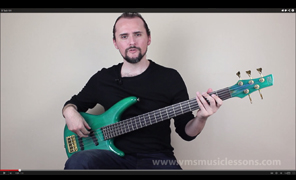Patient
I've heard teachers yell at students for misunderstanding what seem like simple directions, or get annoyed with them for being unable to accurately execute a certain exercise. I never yell. I don't get annoyed. If you cannot play something and you're following what I asked you to do, it just means you have to practice it more. If I explain something, and you don't understand, I take it as a challenge to find a new way to make it clear to you. That's the essence of teaching. It's therefore my responsibility to figure out how to communicate that knowledge. And if you don't always get a lot of practice in, I know life can be more demanding at times. If you never practice, and only take lessons because your parents make you, I've been there too. I'll see you through it.
Flexible
Don't want to learn how to read music? Just want to learn songs? Can't stand rhythms, or scales, or theory? As valuable as all of these and many other subjects are, I will not try to force you to fit my 'program'. Everyone has different interests, needs, and abilities. As a teacher, I can only be your guide. I have had students who run the entire spectrum, from those who only want to learn songs and cannot stand to hear about any patterns, styles, or methods, to those who only want to learn about scales, progressions, and theory without learning any songs. Ideally, we'll find a balance in between so you can obtain the rewards each have to offer. But if not, I've been there before.
Dynamic
After the first few lessons, I almost always begin each lesson with a question like "So what's new this week?" My aim is to use whatever song, riff, or lesson the student might have come across online or from a friend as an example of something we have covered before, or as an introduction to something we have not yet covered. There is perhaps no more effective way to learn than in context, so I encourage my students to use all the resources available to them, especially what can be found online. Using the lessons as an extension or accessory to your normal routine can be very effective. You will learn more by having a question answered, than by being given an answer to a question you have yet to ask.
Methodical
Go to www.amazon.com and search for 'Bass Scales' and buy one of the books you see listed. Or, save yourself a lot of time and just burn $10 to $20 right now. Books like these make what is a fairly simple subject seem like a virtually endless and very complicated process. The reason is, you are being shown dozens upon dozens of ways to do the same thing so that the author can fill enough pages to qualify for book status. There is a system behind scales. It is far better to learn that system and gradually discover the many ways it can be applied than to be inundated with a lot of pictures and diagrams (most of which aren't worth learning anyway). The bottom line is, dictation does not equal education. Though I do of course show my students scales by using diagrams, my approach ultimately liberates my students from forever being dependent upon illustrations and diagrams to know what to do. I help my students understand what lies behind such demonstrations.





